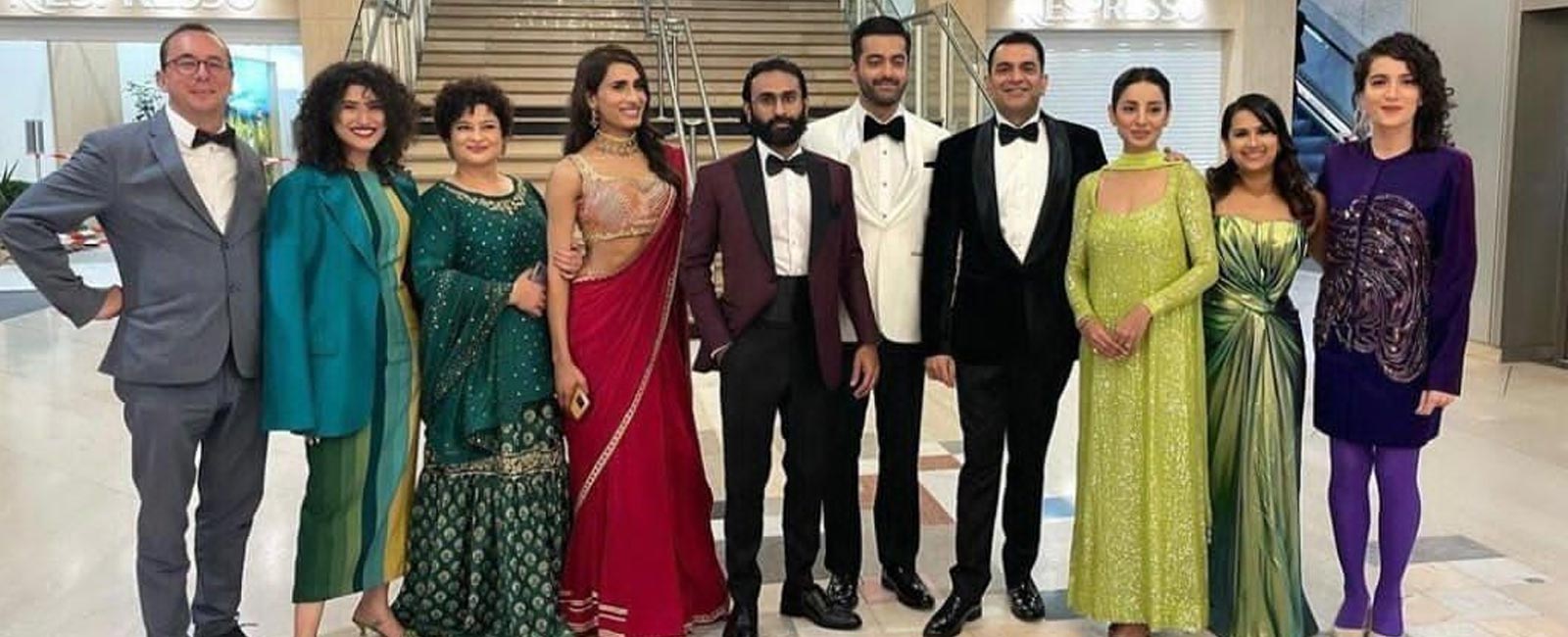How trans actor Alina Khan landed role in Joyland
Her struggles in life and her never give up attitude brought her to international stage at Cannes Film Festival

Alina Khan, a transwoman living in Pakistan, is a real-life superhero.
Her struggles in life and her never give up attitude brought her to the international stage at the Cannes Film Festival last year. In fact, Khan’s appearance at the star-studded event made history, as she became the first transgender to represent Pakistan at the Cannes.
When Joyland, the critically acclaimed feature film Khan acts in, was screened at the festival, the audience erupted in applause and a standing ovation. Not only that the film also bagged the Jury Prize.
It was an overwhelming moment for Khan, to finally be seen. But it also reminded her of the long and difficult journey that brought her here.
Growing up, every time she tried to leave her home, the society was never welcoming. “Most people treat the trans community as a joke,” she recalled, which always forced her to return home.
“However, living with family as a transwoman was not easy either,” she added.

The young trans woman kept looking for a place to call home until she met her saviour, Lucky Khan, who introduced her to Neeli Rana, through whom Khan met the rest of the trans community.
Even with a sense of belonging, Khan’s troubles were far from over. She soon ran into financial problems, making it difficult for her to make ends meet. “In such a challenging situation, my hobby of dancing proved to be a ray of hope and I tried to make a living through it,” she explained.
There was another unexplored talent Khan would soon turn to — acting.
Even as a child, Khan wished to see herself on the big screen. That dream was only realised when she met Sana Jafri, a film director, by chance at an event organized by an NGO. The two exchanged contact numbers.
“A few months later, my NGO called to ask if I was interested in auditioning for a short movie, titled Darling,” Khan told Geo.tv, “I had no idea how to audition but I still said yes.” She then displayed her acting chops in front of Saim Saddiq, the director of Darling. But he was not impressed.
Sadiq gave the part, of a transgender, to another actor. Then, a few months later, Khan got an unexpected call from Sana Jafri, who told her that they were dropping the actor and Khan had only five days to prepare for the role.
That is how her acting journey began.
“As a child, I would wear a dupatta (scarf) and dance around my house,” Khan recalled, “My father used to say that I would become an actor. Allah turned his words into reality.”

But working in the media industry came with its own set of challenges. After doing Darling, the actor struggled to find work. There were not many roles in Pakistan’s film industry written for transwomen.
“I was also rejected for many roles because of my gender,” she said.
The roles that did come her way were degrading to the struggles of the transgender community. These scripts either mocked the trans community or got their lives entirely wrong.
But along came Joyland. After landing the role of Biba, a transgender dancer, Khan worked day and night to understand the character.
“One of the reasons I agreed to take the role was that a transwoman was not portrayed as bechari (helpless) in the movie,” she tells Geo.tv, “Biba is passionate about her work, hardworking and wants to show the society that she had potential.”
When the call came for Cannes, Khan got her passport stamped and travelled outside Pakistan for the first time.
After stepping onto the international avenue of film and art, Khan was surprised to notice that no one questioned her gender. “They all respected me, valued my humanity and talent,” she said.
— Thumbnail and header images have been provided by the author




